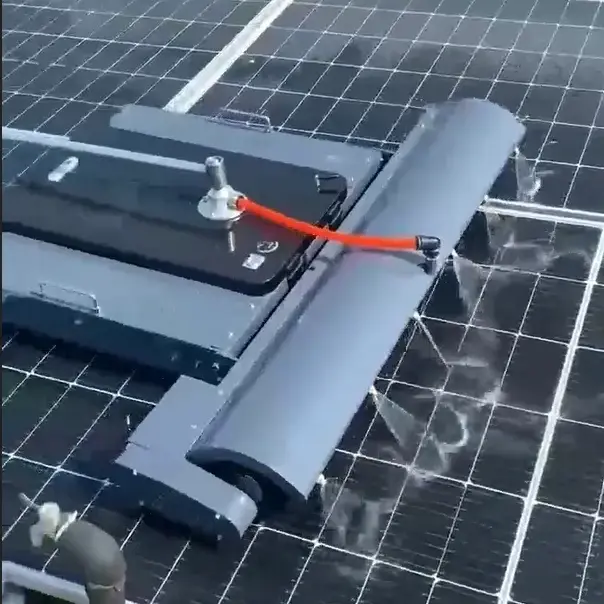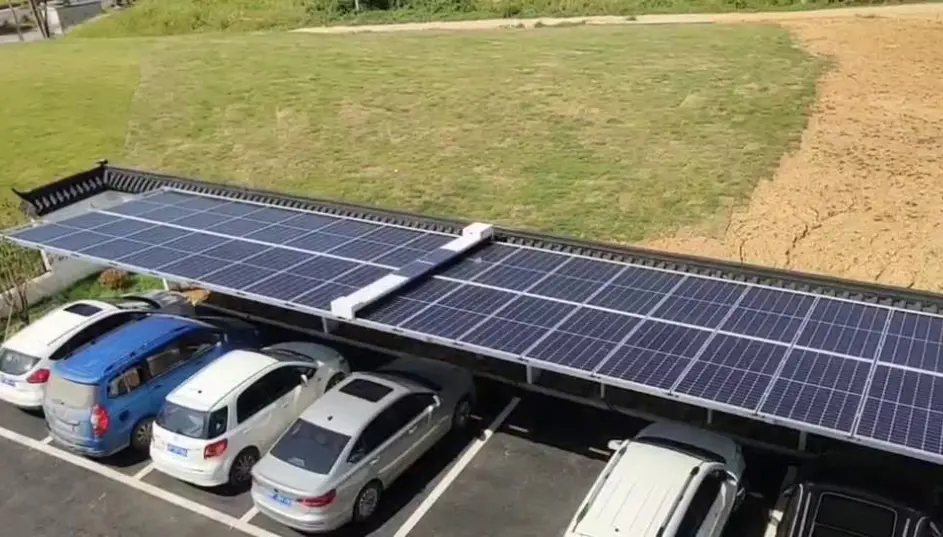Against the backdrop of global attention on renewable energy, photovoltaic (PV) power generation has gained wide acceptance as a clean energy source. However, the wastewater generated during the cleaning of PV panels presents significant environmental concerns. This article investigates the primary environmental impacts resulting from PV panel cleaning and outlines corresponding management strategies.

Environmental Impacts of Wastewater from PV Panel Cleaning
1. Water Resource Waste
Cleaning PV panels requires substantial amounts of water. Studies indicate that cleaning once for a 1 MW PV power station requires 5 tons of freshwater and 230 kilograms of cleaning agents, with an annual cleaning frequency of 15 times. Taking the example of a 200 MW PV power station in Guangxi Guiping, the annual water consumption reaches approximately 15,000 tons. This not only represents a waste of precious water resources but may also lead to water scarcity in local areas.
2. Soil Pollution
The cleaning detergents used for PV panels often contain surfactants and other chemical additives, such as brighteners and fragrances. The long-term accumulation of these chemicals can lead to soil pollution. Over a 25-year operational cycle, the buildup of pollutants may convert land into “toxic” territory, adversely affecting crop growth and potentially impacting human health through the food chain.
3. Water Pollution
If discharged untreated, wastewater can pollute water bodies. Research shows that even low concentrations of surfactants in the cleaning agents can be acutely toxic to plankton and fish. Additionally, anionic surfactants (LAS) produce significant amounts of foam, hindering the contact between water and air, thereby depleting dissolved oxygen in the water and further degrading water quality. This not only threatens the survival of aquatic organisms but also jeopardizes the safety of drinking water.
4. Ecosystem Damage
The wastewater generated from PV panel cleaning negatively affects surrounding ecosystems. Soil and water pollution can impair plant growth and aquatic organisms, disrupting ecological balance and affecting the overall health of the ecosystem.
5. Legal Regulations and Responsibility
According to national laws, the principle of “whoever pollutes, whoever manages” mandates that PV power stations are responsible for repairing environmental damage caused by wastewater from cleaning activities. Consequently, it is essential to plan wastewater collection and treatment facilities in the early stages of project development to avoid potential future remediation costs.
Alternative Cleaning Solutions and Management Measures
Alternative Cleaning Solutions
To mitigate environmental impacts, various alternative cleaning solutions are being researched and implemented. For instance, waterless cleaning robots employ efficient brushing technology to clean PV panels, achieving over 90% cleaning efficiency while significantly reducing the use of water and chemical agents. Thus, using waterless cleaning robots is an excellent option. Although the high upfront costs of such devices limit widespread adoption, their long-term environmental benefits are evident.

Environmental Management Measures
To address the issues arising from wastewater generated during PV panel cleaning, the following management measures can be implemented:
Wastewater Collection and Treatment: During the initial construction phase of the PV plant, establish facilities for wastewater collection and treatment to ensure that wastewater generated from cleaning is treated before discharge or used for landscaping irrigation.
Use of Eco-friendly Detergents: Choose cleaning agents with minimal environmental impact to reduce chemical residue and pollution.
Regular Monitoring: Conduct regular monitoring of soil and water bodies to assess pollution levels and take timely remedial actions.
Strengthening Regulation: Government agencies should enhance environmental oversight of PV plants to ensure compliance with environmental protection requirements and prevent unrestricted wastewater discharge.
Conclusión
The environmental impacts of wastewater from PV panel cleaning cannot be overlooked. It is crucial to adopt effective management and technological measures throughout the planning, construction, and operational phases of projects to minimize adverse effects on water resources, soil, water bodies, and ecosystems. By employing environmentally friendly technologies, such as waterless cleaning robots, and enhancing regulatory oversight, we can promote the development of PV energy while safeguarding our environment.